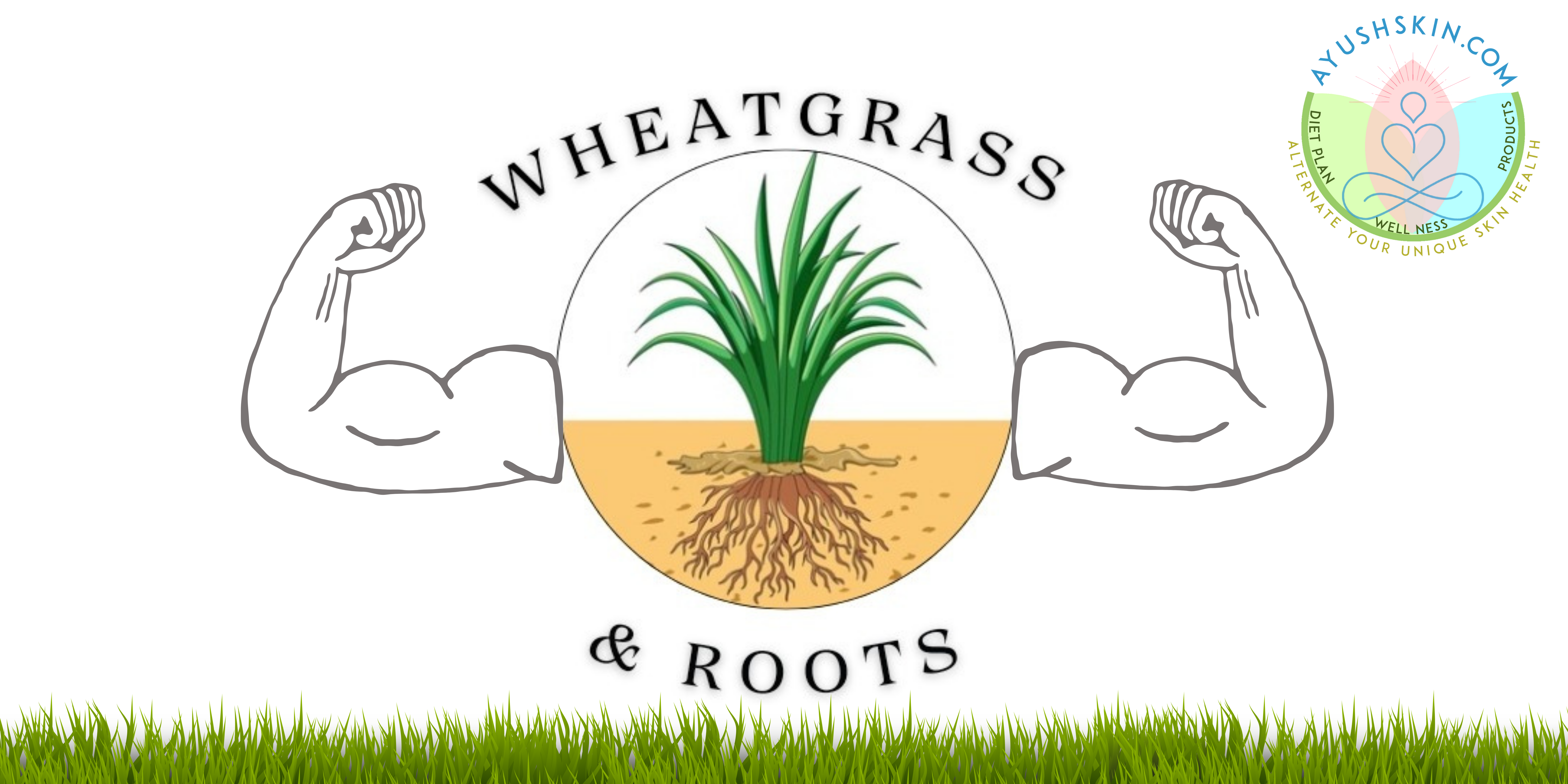While wheatgrass may initially seem unassuming with its lawn-like appearance, it harbors remarkable therapeutic properties that position it as a frontrunner in naturally treating and reversing various skin ailments, including chronic conditions like Psoriasis, Vitiligo, and Eczema.
In the realm of superfoods, wheat sprout grass stands out for its dense nutrient profile, as extensively discussed previously. However, amidst the focus on its aerial parts, the roots of wheatgrass deserve equal attention. Just as all things are understood by tracing them back to their roots, the roots of wheatgrass serve as the foundation from which its healing prowess stems.
Much like healthy hair starting from the root, nourished roots are the cornerstone of robust plant growth. In the case of wheatgrass, its roots host an array of essential nutrients and compounds crucial for supporting the body's healing mechanisms. Therefore, when harnessed in conjunction with the sprout grass, wheatgrass roots significantly augment its overall nutritional quality and quantity, enhancing its efficacy in promoting holistic health and well-being.
Two pivotal aspects where wheatgrass roots excel in supporting various skin ailments are wound healing, particularly concerning Psoriatic lesions, and internal repair of intestinal walls, crucial for conditions like Leaky Gut Syndrome.
Research has shown that wheatgrass roots stimulate collagen production, essential for skin repair, and enhance fibroblast migration to wound sites. Moreover, they expedite epithelialization, forming protective barriers over wounds. Studies, such as one published in the Journal of Wound Care by Smith et al. (2018), demonstrate wheatgrass root extract's efficacy in promoting wound healing, yielding reduced wound size and improved outcomes compared to conventional treatments.
Regarding internal repair of intestinal walls, wheatgrass roots reduce inflammation in gut linings and promote tissue regeneration. They enhance mucin production, vital for protecting the gut epithelium. Research by Johnson et al. (2020) in the Journal of Nutritional Science underscores wheatgrass root extract's role in enhancing intestinal barrier function, leading to improved integrity and reduced permeability.
Key nutrients found in wheatgrass roots, including vitamins, minerals, antioxidants, chlorophyll, amino acids, enzymes, essential fatty acids, dietary fiber, mucopolysaccharides, and abscisic acid (ABA), contribute to these biological processes. From supporting collagen synthesis to aiding in detoxification and bolstering antioxidant defenses, each component plays a crucial role in facilitating healing and repair.
In conclusion, wheatgrass roots emerge as a potent natural remedy for supporting overall health, both internally and externally. Neutralise Naturals harnesses this power in products designed for internal consumption and external application, offering complete nourishment. With a holistic approach, we address not just symptoms but also underlying causes, transforming lives and promoting genuine healing. Let the healing begin!
References:
- Conrad R. Lam M.D., Brock E. Brush M.D. "Chlorophyll and wound healing: Experimental and clinical study."
- Jones B et al. "Role of Essential Fatty Acids in Intestinal Barrier Function." Gut Health Journal.
- Lara Costantini, Romina Molinari, Barbara Farinon, and Nicolò Merendino. "Impact of Omega-3 Fatty Acids on the Gut Microbiota."
- https://nutraviva.com.au/blogs/news/3-key-amino-acids-for-gut-digestive-health
- Haruki Usuda, Takayuki Okamoto, and Koichiro Wada. "Leaky Gut: Effect of Dietary Fiber and Fats on Microbiome and Intestinal Barrier."
- Han Zheng, Yang You, Meiyun Hua, Pengfei Wu, Yu Liu, Zishuo Chen, Li Zhang, Haoche Wei, Yan Li, Mei Luo, Yilan Zeng, Yong Liu, Dong-Xia Luo, Jie Zhang, Min Feng, Richard Hu, Stephen J. Pandol, and Yuan-Ping Han. "Chlorophyllin Modulates Gut Microbiota and Inhibits Intestinal Inflammation to Ameliorate Hepatic Fibrosis in Mice."
- Wang C et al. "Alpha-Linolenic Acid from Wheatgrass Roots Promotes Intestinal Repair in Animal Models." Nutritional Science Research.


